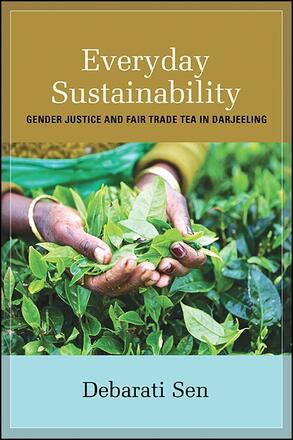
Everyday Sustainability
Gender Justice and Fair Trade Tea in Darjeeling
Alternative formats available from:
Open access edition available from:
Illuminates the contradictions that emerge within conscious capitalism initiatives that are designed to empower women.
Description
Honorable Mention, 2019 Michelle Z. Rosaldo Prize presented by the Association for Feminist Anthropology
Winner of the 2018 Gloria E. Anzaldúa Book Prize presented by the National Women's Studies Association
Winner of the 2018 Global Development Studies Book Award presented by the Global Development Studies Section of the International Studies Association
Everyday Sustainability takes readers to ground zero of market-based sustainability initiatives—Darjeeling, India—where Fair Trade ostensibly promises gender justice to minority Nepali women engaged in organic tea production. These women tea farmers and plantation workers have distinct entrepreneurial strategies and everyday practices of social justice that at times dovetail with and at other times rub against the tenets of the emerging global morality market. The author questions why women beneficiaries of transnational justice-making projects remain skeptical about the potential for economic and social empowerment through Fair Trade while simultaneously seeking to use the movement to give voice to their situated demands for mobility, economic advancement, and community level social justice.
SUNY Press has collaborated with Knowledge Unlatched to unlock KU Select titles. The Knowledge Unlatched titles have been made open access through libraries coming together to crowd fund the publication cost. Each monograph has been released as open access making the eBook freely available to readers worldwide. Discover more about the Knowledge Unlatched program here: https://www.knowledgeunlatched.org/, and access the book online at the SUNY Open Access Repository at https://soar.suny.edu/handle/20.500.12648/8447
.
Debarati Sen is Associate Professor of Anthropology at the University of Houston, and prior to that was Assistant Professor of Anthropology and International Conflict Management at Kennesaw State University.
Reviews
"Unique for its foregrounding of women's narratives, this ethnography is a valuable contribution to sustainability studies and an important text for scholars, students, and practitioners studying women's work and sustainable development in South Asia … Everyday Sustainability is compelling and praiseworthy for its vision to push feminist ethnography beyond the reflexive gaze and into the intersections of privilege, caste, and location. " — Pacific Affairs